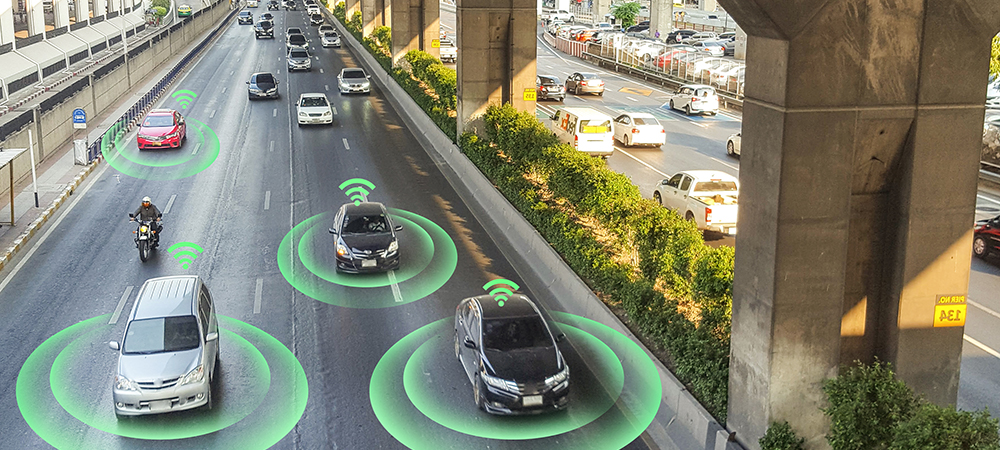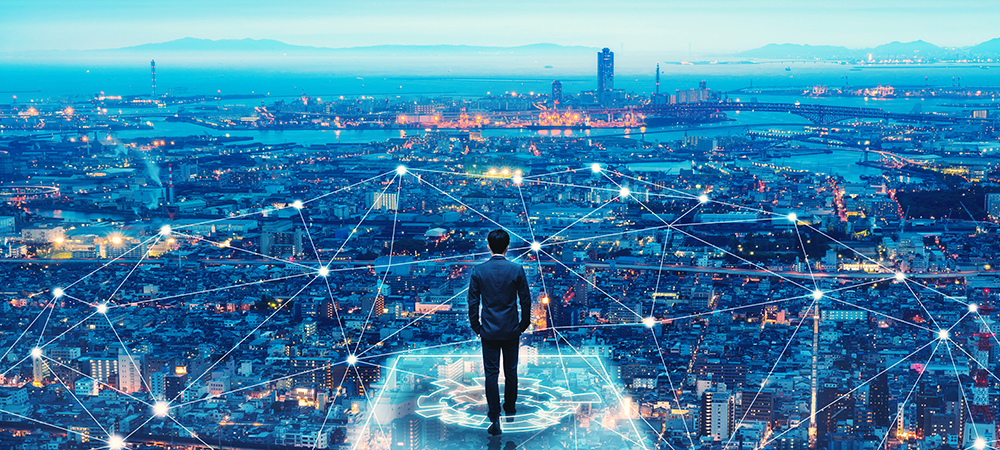Smart city conjures up images of futuristic urban landscapes with innovative technology, yet at their core, smart cities are about enhancing quality of life through the intelligent use of information and communication technologies, explains Andrea Sorri at Axis Communications.
Cities like Abu Dhabi and Dubai stand as recognised leaders in smart urban living, epitomising technological advancement. Meanwhile, Doha and Riyadh are steadily progressing towards becoming smart cities. Areas such as Doha’s Msheireb district showcase promising advancements, while Riyadh is poised for substantial growth, with plans to double its size over the next seven years through ambitious infrastructure projects totalling $1 trillion.
As we see a global shift towards urbanisation, with forecasts suggesting over 60% of the world’s population will live in urban areas by 2050, the concept of smart cities has never been more relevant.
This upward trend towards urbanisation is historic, shaping human settlement patterns for decades. Since the onset of industrialisation, we have seen a consistent migration from rural to urban areas, driven by the allure of better employment, education and healthcare opportunities, as well as the promise of a more vibrant lifestyle.
This relentless urban expansion brings to the fore the critical need for sustainable urban management strategies to address the resulting challenges, including congestion, pollution, and strain on infrastructure and resources.
Against this backdrop, Artificial Intelligence, AI has appeared as a pivotal force, redefining urban existence. The evolution of smart cities goes beyond mere technological advancements; it is about harnessing these innovations to improve the quality of life for urban residents.
AI, with its ability to analyse complex datasets and offer actionable insights, plays a pivotal role in this transformation, making our cities not just smarter, but more responsive to the needs and aspirations of their inhabitants.
The term smart city conjures up images of futuristic urban landscapes, brimming with innovative technology. Yet, at their core, smart cities are about enhancing the quality of life for their residents through the intelligent use of information and communication technologies. This concept is inherently fluid, varying significantly from one city to another, shaped by local needs, cultures, and ambitions.
By using technology to improve infrastructure and urban services, smart cities aim to become more efficient and sustainable, thereby reducing costs and resource consumption. The integration of AI into this ecosystem is a leap forward, offering unprecedented opportunities for cities to adapt and evolve in response to the dynamic needs of their inhabitants.
The integration of AI into this ecosystem considers the unique cultural heritage and environmental challenges of cities in the Middle East. It uses technology to preserve historical sites while ensuring sustainable management of natural resources, such as water and energy. This approach is particularly critical in the region’s arid climate.

AI stands at the forefront of this urban progression, offering solutions that not only streamline city operations but also predict and respond to the needs of the urban populace. For instance, in transportation, AI-driven traffic signalling and sensor systems can significantly reduce congestion by adjusting signal timings based on real-time vehicle density data, to smoother traffic flow and reduced fuel consumption.
The advent of AI in smart cities heralds a new era where AI systems learn from and adapt to the interactions of citizens within their communities. This continuous improvement in AI algorithms enables cities to uncover insights that were previously obscured, enhancing urban planning and management.
AI’s ability to process vast quantities of data from diverse sources, such as public transportation systems, municipal records, and sensor networks, allows for a more nuanced understanding of urban dynamics.
This, in turn, empowers municipal governments to proactively meet the needs of their citizens, optimising the use of public infrastructure and resources.
The integration of AI with Internet of Things, IoT technologies has been transformative, particularly with the evolution of network cameras beyond traditional video surveillance. These cameras have become smart IoT sensors, integrating edge computing and deep learning to provide enhanced scene data, analytics, and automation.
This transition enables these devices to play versatile roles in urban management, from traffic and crowd density monitoring to public safety and event management, significantly saving bandwidth and storage while informing a broad spectrum of decision-making processes.
This convergence of AI and IoT technologies embodies smart city innovation, turning urban environments into interconnected ecosystems. By doing so, these technologies not only address specific operational challenges but also contribute holistically to the greater vision of smart cities: urban spaces that are more liveable, efficient, and adaptable to the changing needs and expectations of their residents.
In the realm of public safety, the presence of these advanced camera systems alone has proven to be a deterrent to criminal activity. However, for those undeterred, the use of AI-enabled forensic search capabilities allows law enforcement to rapidly sift through video data to show and act upon security threats, enhancing the efficiency and effectiveness of urban safety measures.
The versatility of AI in smart cities extends beyond public safety, touching upon crucial aspects of environmental sustainability as well. Additionally, energy optimisation is still a pivotal area where AI showcases its value.
By monitoring energy usage patterns across urban landscapes, AI technologies enable smart cities to find high-energy waste areas and implement targeted conservation measures. This helps promote sustainability while contributing to the broader goals of creating efficient and environmentally friendly urban environments.
Looking ahead, AI integration in urban environments is set to deepen, permeating every aspect of city life. From revolutionising healthcare, education, and transportation to spurring economic growth, AI’s potential for innovation is boundless.
Particularly for the Middle East, a region at the vanguard of smart city development, the continued embrace of AI offers a unique opportunity to lead by example, showing how technology can forge more liveable, efficient, and resilient urban landscapes.
Yet, the journey towards smarter cities transcends technology alone. It is inherently a collaborative endeavour, relying on the synergy between policymakers, technologists, and citizens. As AI redefines urban living, fostering an environment where technology and humanity intersect is paramount.
Embracing these advancements will address urban challenges and pave the way for a future where smart cities are the norm, exemplifying cities filled with wisdom.

Key takeaways
- AI with its ability to analyse complex datasets plays a pivotal role making cities not just smarter, but more responsive to inhabitants.
- AI uses technology to preserve historical sites while ensuring sustainable management of natural resources, such as water and energy.
- AI stands at the forefront of urban progression offering solutions not only to streamline city operations but also predict the needs of the urban populace.
- The advent of AI in smart cities heralds a new era where AI systems learn from and adapt to the interactions of citizens within their communities.
- Continuous improvement in AI algorithms, enables cities to uncover insights that were previously obscured, enhancing urban planning and management.
- AI has the ability to process vast quantities of data from diverse sources, such as public transportation, municipal records, sensor networks.
- AI-driven traffic signalling and sensor systems can reduce congestion by adjusting signal timings based on real-time vehicle density data.
- The presence of AI and advanced camera systems has proven to be a deterrent to criminal activity.
- Use of AI-enabled forensic search capabilities allows law enforcement to rapidly sift through video data to show and act upon security threats.
- Versatility of AI in smart cities extends beyond public safety, touching upon crucial aspects of environmental sustainability as well.
- By monitoring energy usage patterns across urban landscapes, AI enables smart cities to find high-energy waste areas.


